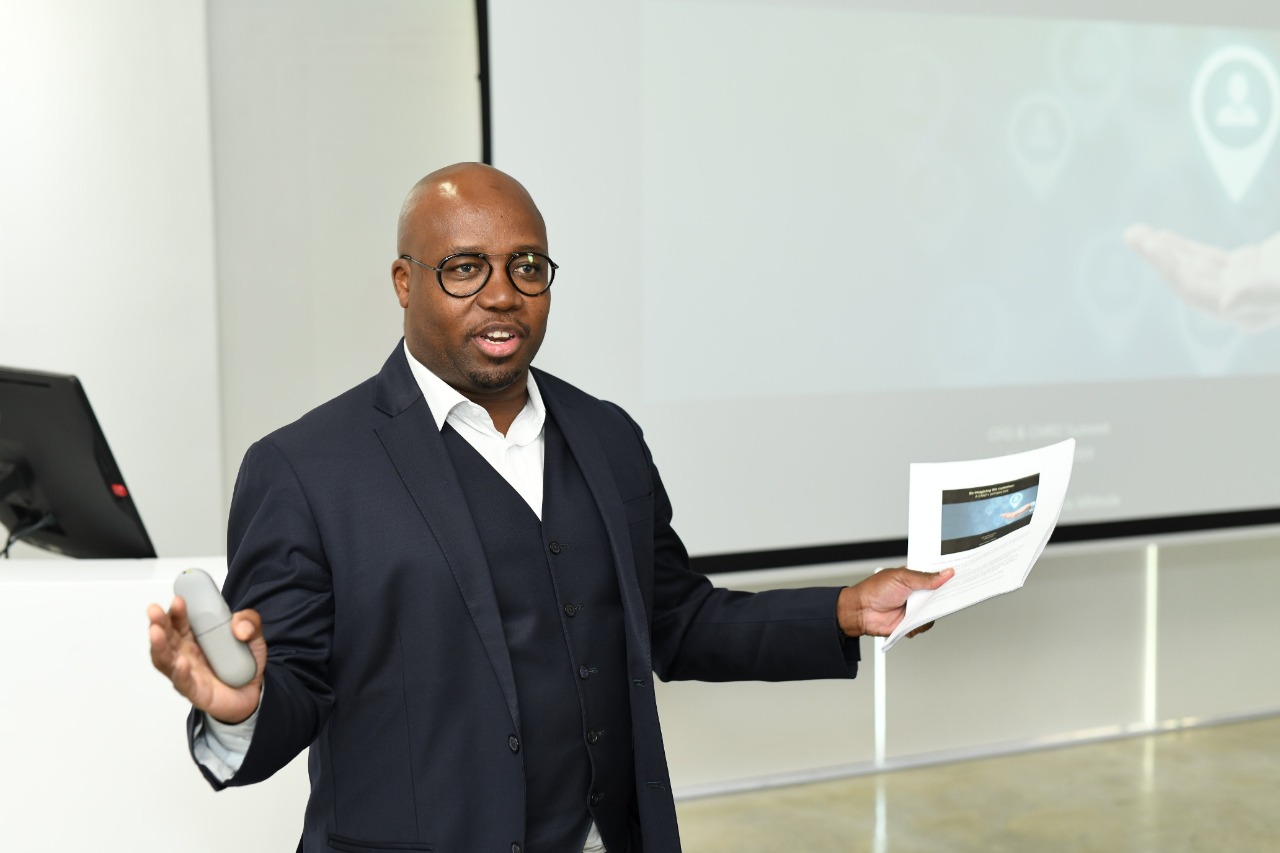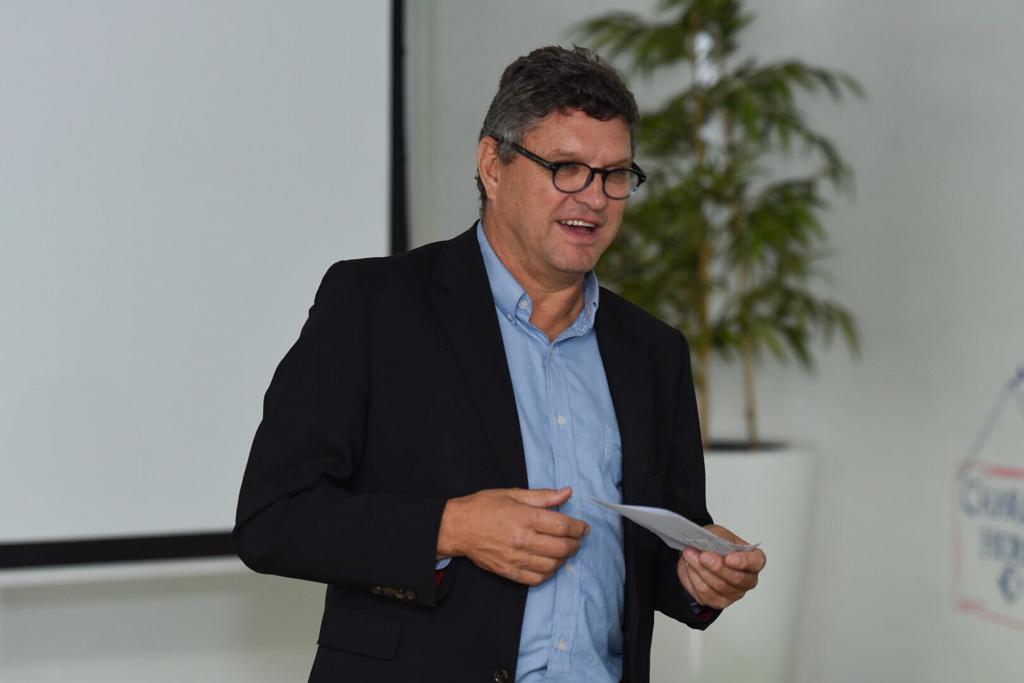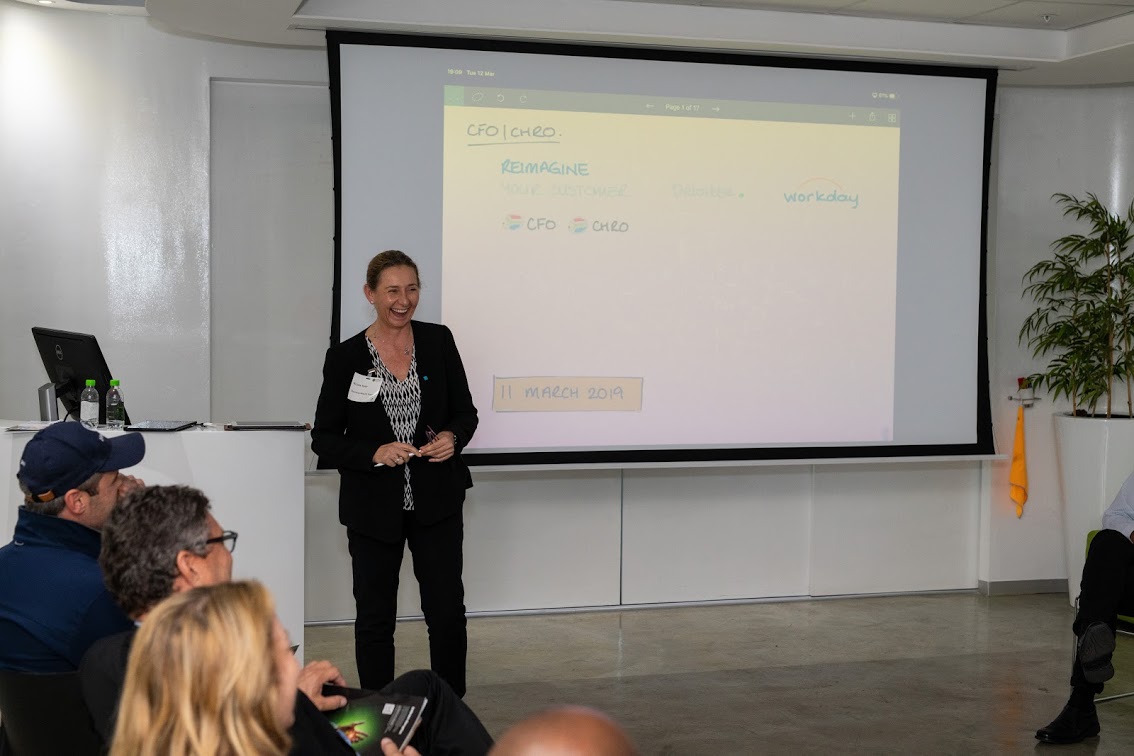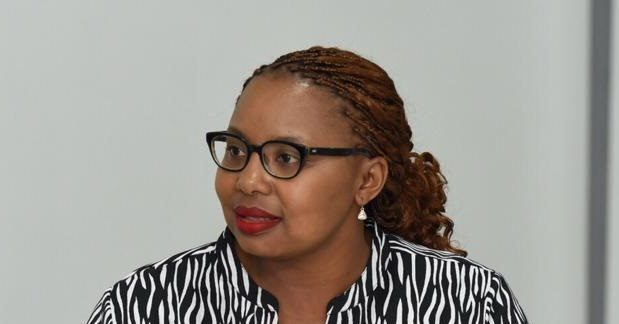Nomaxabiso Teyise: To reimagine the customer, go back to basics. Human beings are still the same.
CFOs, CHROs and CMOs gathered at the Deloitte Greenhouse in Cape Town for CFO South Africa’s Reimagine the Customer summit. Attendees were fully engaged with the message, keen to gain insights from the exceptional speakers into how to put the customer at the centre of the business.
The event was made possible by partners Deloitte and Workday*.

Sydney Mbhele, the chief executive: Brand at Sanlam (from 1 April), kicked off the proceedings with a presentation on reimagining the customer from the perspective of a CMO. He delivered the rather sobering statistics that on average only 13 percent of HR interfaces with the customer, and only 16 percent of finance do so, yet revenue and growth are functions of happy customers.
He pointed out that the fact that organisations need to reimagine the customer suggests that they have lost their way and aren’t delivering what matters most.
“A customer-centric organisation is more than a company that offers good service. It needs to put the customer at the centre of everything that it does. Whose responsibility is it to do that? The job will never be done in full and on time unless there is the full might of an organisation working cohesively to deliver a customer experience.”
The audience then split into two groups to listen to and interact with either Nomaxabiso Teyise, the group HR executive at the Oceana Group, or Andre du Plessis, CFO of Capitec Bank. (The audience swapped rooms after their presentations so that they were able to access the wisdom of both speakers.)
Nomaxabiso, with her focus as an HR executive, drove home the message that customers are still human beings, and that as far as she is concerned, the more things change, the more they stay the same. “To reimagine the customer, go back to basics,” she said. “As much as the Fourth Industrial Revolution is putting artificial intelligence and robotics at our disposal, human beings are still the same.”
She gave the example of how a headhunter approached her at a time in her life when she was at a crossroads, and although he had extensive professional information about her, when they met, he took the time to understand what she wanted. He then said that it had been lovely to meet her, but that he already knew that the appointment wouldn’t be right for her. She appreciated his approach – treating her as a person rather than a commodity – and she still uses his services her other placements today.
She also cautioned against believing that big data is going to deliver customer insights that are taken as gospel:
“Human beings are complex. I think we should hold on to what we think we know very lightly. We have enough data to fill volumes. We think we’re getting closer, but in fact we’re getting further away. We’ve lost that human connection.”
She referenced how social media makes us feel connected with our friends, but we are often surprised by news of a divorce only weeks after seeing the happy family photos of an old school friend. She pointed out that we run the risk of making the same mistake in business by relying too heavily on data and technology for our customer insights.
Andre’s session looked at how Capitec has built a successful brand that is strongly predicated on the customer.
He said:
“One of the biggest problems that there are in organisations is that the what and the why are pulling away from each other. Entrepreneurs start a business and they know what they are doing and why, but as the business grows, people end up knowing what they are doing but not why. As a management team, we spend a lot of time making sure that the what and the why don’t move away from each other at Capitec.”
He spoke about how the management strategy is to focus on being client-centric, with energy and ownership. When something needs to be done, they download it to the next level of management, who then cascade it down to all staff. “By the next day, everyone knows what they need to deliver on.”
He also made the point that customer insights can be gained from anywhere in the organisation. “We have 23 people working full time in social media. And what they learn, they give back to us. Everyone feels that they are contributing.”
He pointed out that with the bank processing between 3,500 and 4,000 transactions per second, errors will happen. He says that recovering from these errors is all about how they communicate with the client. “You have to make sure you don’t stuff up the relationship forever. We want them to take out that card and be proud.”
Nicola Tyler, the CEO of the Business Results Group, delivered the closing comments. She summarised the speakers’ presentations with an astonishing live-sketched presentation, and echoed what Nomaxabiso said earlier about connectivity. “It’s a paradox that we’ve never been more connected and yet disconnected.”
 She concluded with a quote from American businessman and writer Tom Peters:
She concluded with a quote from American businessman and writer Tom Peters:
“The magical formula that successful businesses have discovered is to treat customers like guests and employees like people.”
In his closing remarks, CFO South Africa MD Joel Roerig thanked event partners Deloitte and Workday*, without whom quality summits of this calibre would not be possible, and the speakers who generously shared their time and insights with other members of the community.
* Recognised at #2 on the Forbes “Most Innovative companies list” in 2018, the world’s leading companies trust Workday as their enterprise cloud suite, supporting breakthrough results in financial management, human capital management, and planning across a wide range of challenges and industries. Leading companies using Workday include the likes of Amazon, Netflix and Bank of America.











